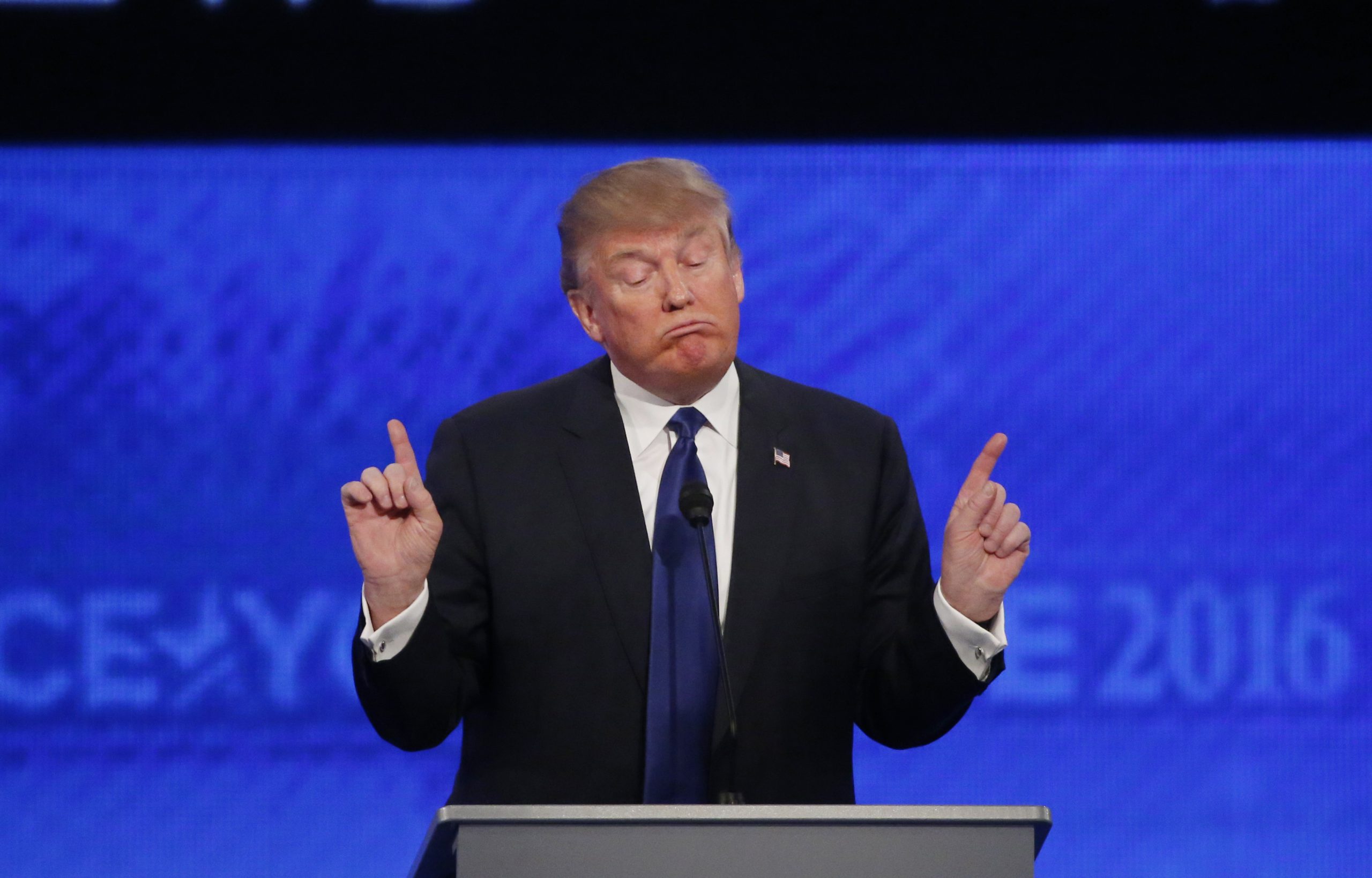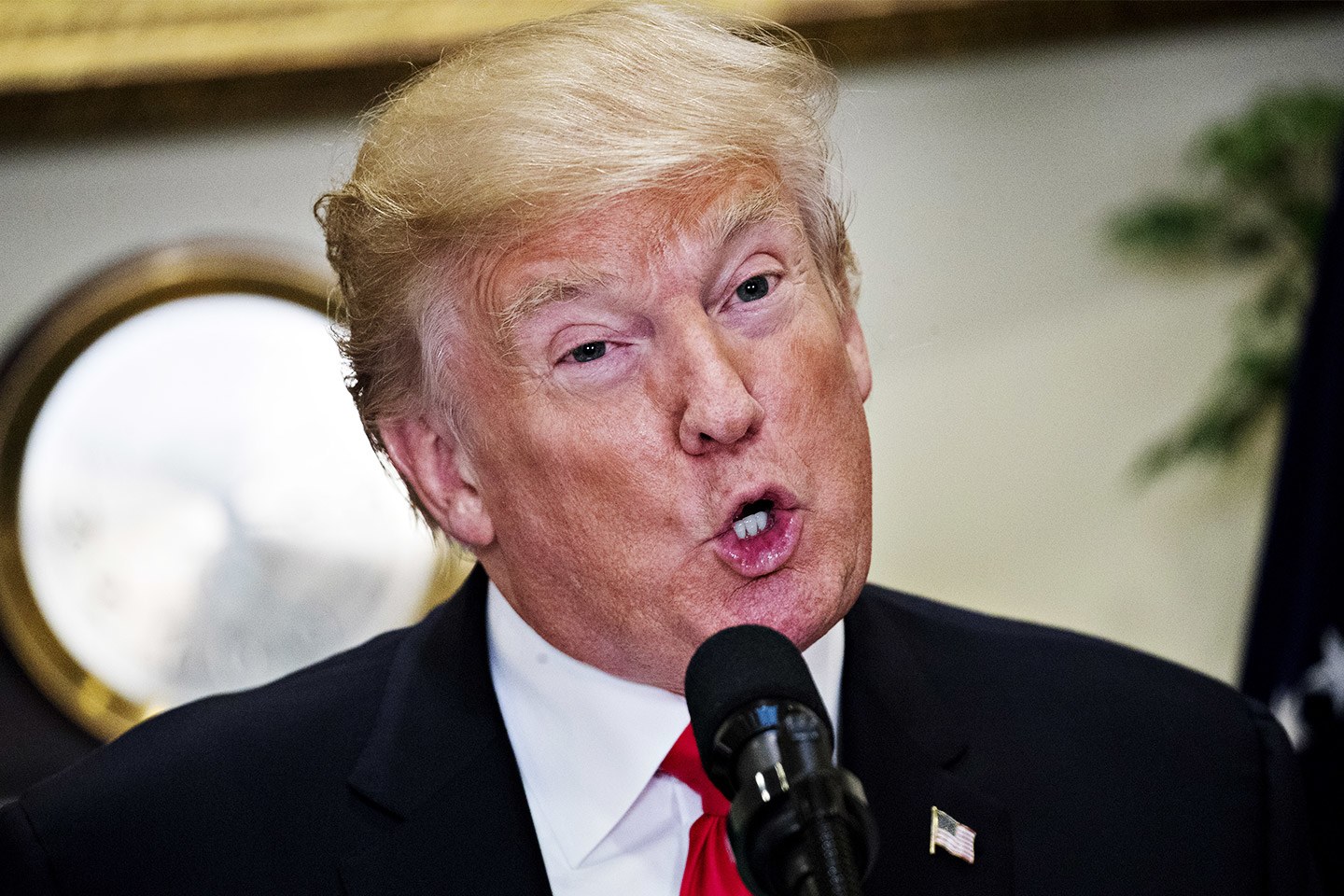U.S. President Donald Trump’s travel ban in January 2017 targeting several Muslim-majority countries kicked off a vicious circle of “hatred,” Amnesty International said on Thursday.
“The transparently hateful move by the U.S. government in January to ban entry to people from several Muslim-majority countries set the scene for a year in which leaders took the politics of hate to its most dangerous conclusion,” Salil Shetty, Secretary-General of Amnesty International said.
Amnesty International released its annual report on the threshold of the 70th anniversary of the Universal Declaration of Human Rights, a fundamental international document on human rights, which was proclaimed three years after the UN was established in 1945.
The report, titled the State of the World’s Human Rights, provides an outlook of the state of human rights in 159 countries across the world.
The year 2017 “experienced the bitter fruits of a rising politics of demonisation,” as it witnessed in the crackdown against the Rohingya minority in Myanmar, the humanitarian catastrophe in Yemen, exacerbated by Saudi Arabia’ blockade, numerous civilians deaths from the Islamic State terrorist group in Syria and Iraq, the ongoing refugee crisis and other injustices across the globe, the report said.
“The appalling injustices meted out to the Rohingya may have been especially visible in 2017, but the trend of leaders and politicians demonizing whole groups of people based on their identity reverberated across the globe.
“The past year showed us once again what happens when the politics of demonisation become mainstream, with grim consequences for human rights,” the report read.
According to Senior Director for Research at Amnesty International Anna Neistat, the regression in human rights protection appeared to be not an issue of separate states, but a trend that threatens the system of human rights protection as a whole.
“In recent years, and in particular in 2017, we have witnessed, unfortunately, a very significant regression in the protection of human rights.
“It is no longer just that separate states, separate governments or non-governmental forces violate the rights of individuals or groups of individuals; it is a question of undermining the human rights protection system itself,” Neistat said while presenting the report to journalists.
At the same time, the report noted that the year revealed strong willingness of people to fight for their rights, bringing them to the streets in Poland, Zimbabwe, India, the U.S. and other countries.
As Trump assumed his office in January 2017, the fulfillment of his election campaign promises “that were discriminatory or otherwise contradicted international human rights principles” was not late in coming, Amnesty’s report said.
Trump’s executive order, barring nationals from Iran, Libya, Somalia, Yemen and Syria, and subsequently Chad, North Korea and certain Venezuelan officials, from entering the U.S., led to numerous protests and legal challenges, as it is discriminatory in nature, Amnesty said.
Among other U.S. administration moves jeopardising human rights, the report noted plans to build a wall along the U.S.-Mexico border, as well as wrapping up several programmes for immigrants.
According to Margaret Huang, the executive director of Amnesty International USA, the U.S. administration policies neglecting human rights may set a dangerous precedent for other states.
“Defenders of human rights around the world can look to the people of the United States to stand with them, even where the U.S. government has failed.
“As President Trump takes actions that violate human rights at home and abroad, activists from across the country remind us that the fight for universal human rights has always been waged and won by people in their communities,” Huang said, as quoted in Amnesty’s press release.
Amnesty said the situation with human rights in Myanmar dramatically deteriorated over the conflict in the Rohingya-populated Rakhine region.
Ethnic Rohingyas were forced to flee to Bangladesh to escape an offensive by Myanmar troops that was triggered by an August 2017 terrorist attack on police stations by a militant group.
“Hundreds of thousands of Rohingya fled crimes against humanity in Rakhine State to neighbouring Bangladesh; those who remained continued to live under a system amounting to apartheid.
“The army committed extensive violations of international humanitarian law. Authorities continued to restrict humanitarian access across the country.
“Restrictions on freedom of expression remained.
“There was increased religious intolerance and anti-Muslim sentiment. Impunity persisted for past and ongoing human rights violations,” Amnesty said.
According to the report, the situation with civilians who were displaced as a result of conflict, violence and natural disasters continued to be alarming in the country, as people lack humanitarian assistance and protection.
The report noted that human rights activists, lawyers and journalists who spoke about the developments with Rohingya, religious intolerance and military violations “faced surveillance, intimidation and attacks.”
The section about Syria in Amnesty’s International report stated that all the parties to the Syrian conflict committed war crimes and other human rights abuses.
The report specified that the actions of the Syrian government forces and its allies, including Iran and Russia, the U.S.-led coalition, as well as of armed groups, namely the IS, resulted in numerous civilian deaths, displacements and destruction of infrastructure.
“Parties to the armed conflict committed war crimes and other grave violations of international humanitarian law and human rights abuses with impunity.
“Government and allied forces, including Russia, carried out indiscriminate attacks and direct attacks on civilians and civilian objects
“The U.S.-led coalition continued its campaign of air strikes against IS. The air strikes, some of which violated international humanitarian law, killed and injured civilians,” Amnesty said.
The annual review also covered the issue of alleged chemical weapon use by the Syrian government forces in Khan Sheikhoun.
The report specified that sieges in civilian areas resulted in making humanitarian access impossible.
Thus, citing the UN Office for the Co-ordination of Humanitarian Affairs, the report noted that almost 400,000 residents of eastern Ghouta were deprived of medical assistance, basic goods and humanitarian support.
Syrian authorities have been repeatedly accused of using chemical weapons against civilians in the conflict that began in 2011.
Damascus has denied the allegations insisting that its military chemical capacity has been destroyed.
Syria has been in a state of civil war for over six years, with government forces fighting against both Syrian opposition groups and terrorist organizations.
Russia is involved in solving the Syrian conflict by engaging in the fight against terrorist organizations, serving as a guarantor of the Syrian ceasefire and providing civilians with humanitarian aid.
Speaking about the EU refugee crisis, Shetty said in that the leaders of the wealthy states “treated refugees and migrants as problems to be deflected, not as human beings with rights who deserve our compassion.”
The report, at the same time, noted positive developments, saying that a total of 171,332 refugees and migrants arrived in Europe by sea, in 2017, compared to 362,753 a year before, attributing the results to EU states’ cooperation with Libya and Turkey.
However, Amnesty stressed that Europe still failed to comply with relocation schemes adopted in 2015, with some states refusing to accept asylum seekers in line with the approved quota.
“Abuses and pushbacks continued at the EU external borders, from Bulgaria, Greece, Spain, and Poland. Poland’s government proposed legislation to legalize pushbacks, a regular practice at a crossing between Poland and Belarus,” Amnesty said.
Amnesty said forced returns continued to remain a worrying issue, particularly for refugees from Afghanistan.
Amnesty’s report noted that Ukrainian authorities continue to place social activists, journalists and government critics under pressure.
“Civil society activists and members of NGOs, particularly those working on corruption, were regularly harassed and subjected to violence.
“These incidents were often not effectively investigated, and members of the authorities, including security services in some instances, were widely suspected to have instigated them,” Amnesty said.
The report mentioned that the government continued its practice of hushing up journalists who criticize the authorities through “trumped-up” criminal prosecution.
As an example the report provided the situation around the Ukrainian internet news portal Strana.ua and its editor-in-chief Ihor Huzhva.
In June, searches were carried out in the building of Strana.ua, while Guzhva was arrested over allegations of blackmailing a politician.
The media outlet is known for its critical coverage of the Ukrainian government policy, particularly, in the Donbas region.
The report also mentioned cases when international journalists were expelled from the country, and noted that investigations into the murders of journalists Oles Buzina in 2015 and Pavel Sheremet in 2016 still had no results.

